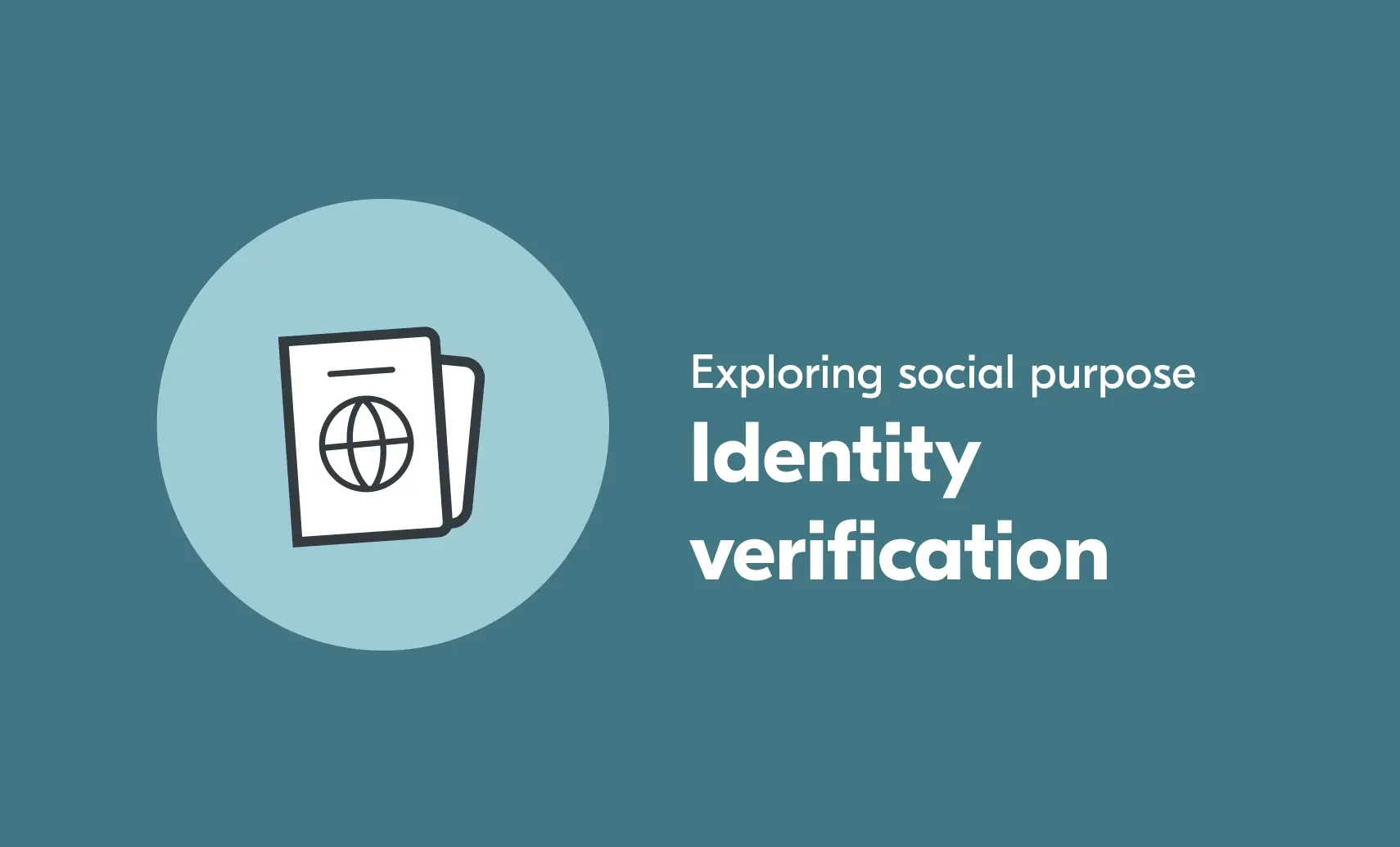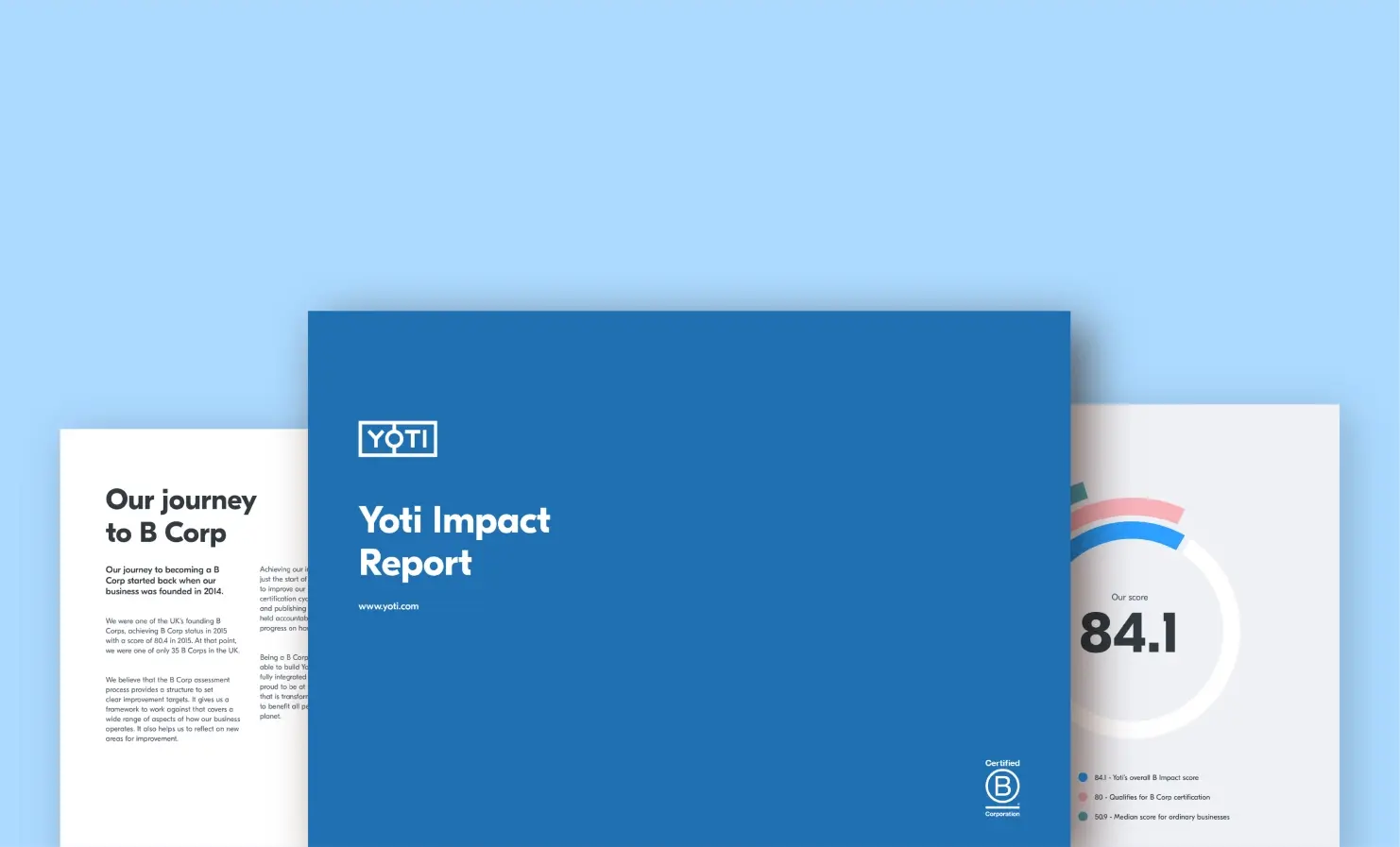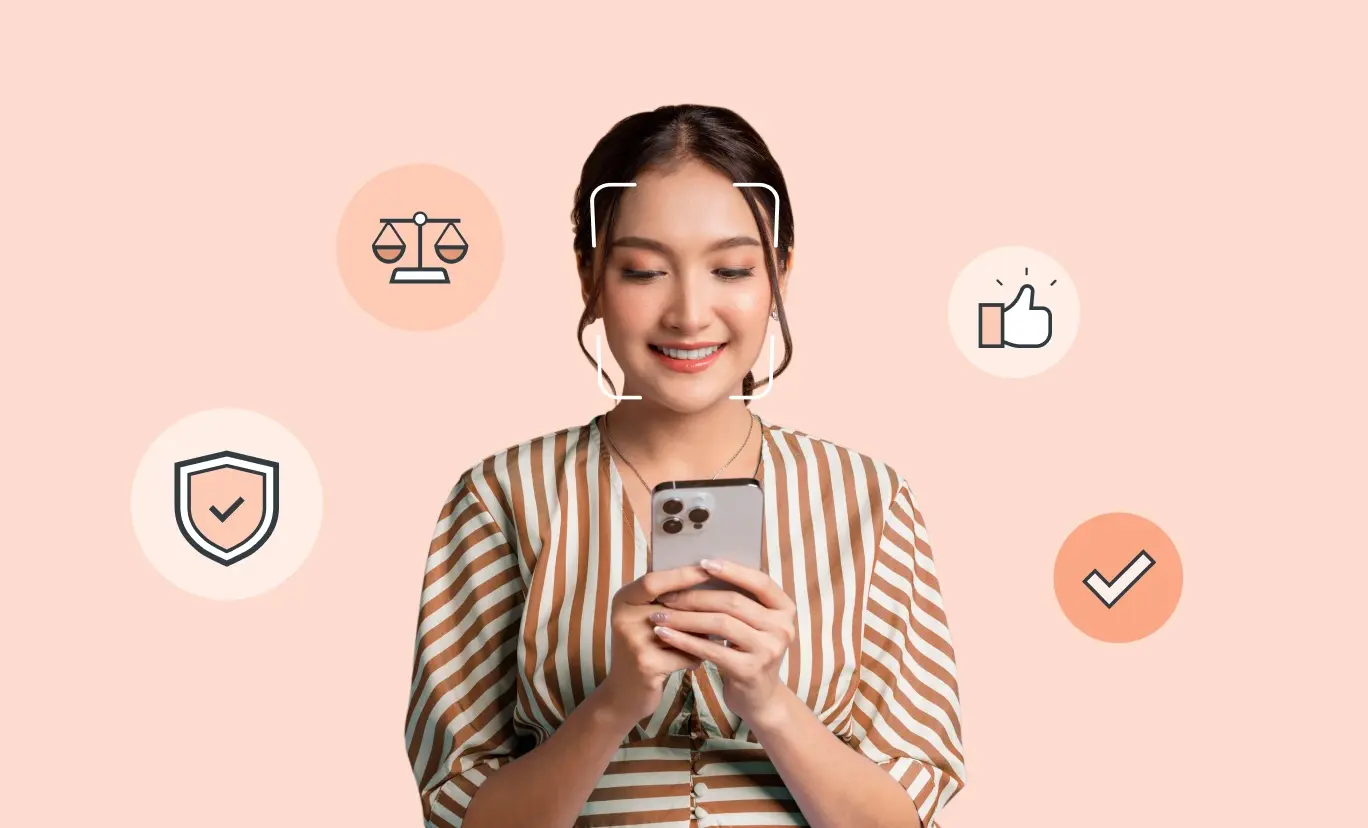
At Yoti, we consider our social purpose alongside everything we do. Through every step of the design process, we think about the everyday challenges that our solutions can solve.
This series looks at how our products can benefit individual users and wider society. This article focuses on how identity verification could help with some common issues.
Why do we need to verify our identity online?
As technology evolves, more services are moving online. Companies need to ensure that the right people can access the right services for them. This has resulted in a growing need for people to prove who they are online. This is particularly important as this evolution starts to incorporate critical services, such as accessing healthcare, benefits and banking.
Identity verification can be completed online, with a Digital ID app or in person. With a choice of effective options, people can access these services as well as experience a range of other benefits.
Financial inclusion
Before online verification, organisations completed “Know-Your-Customer” (KYC) checks manually. Companies would gather information from various paper-based documents to collect and form a view of their customer’s identity.
Not only is this time-consuming, but it excludes large sections of society. Those at risk of financial exclusion include those on low incomes, young people, older people, those without access to their physical ID documents and people who have difficulty accessing banks.
Currently, over 1.1 million people are unbanked in the UK. These people are more vulnerable to financial risks such as theft, unexpected costs and redundancy.
Effective digital identity verification can open the door to greater financial inclusion. Online checks can facilitate transactions by reducing these barriers. People can quickly verify their identity online to businesses or banks located anywhere in the world.
Keeping your ID documents safe
When you start a new job or open a bank account, you’re required to complete an identity check. In most cases, you’ll need to take your document to a physical location or post a copy of it to the organisation. But with this comes the risk of your document getting lost or being stolen. And this happens more often than you might think; with almost one million driving licences lost every year in the UK.
Verifying your identity online means that you can keep your identity documents safe at home. Instead, you can securely share the necessary information with organisations, without the risk of misplacing your documents.
Preventing fraud
As more people go online to complete everyday tasks, there is an increased risk of online fraud. To counter this, many businesses are choosing to verify their users’ identities before granting access to online services or transactions.
For high-risk cases, effective identity verification can also check users’ details against trusted third-party databases. This can include approved sanctions and watchlists, PEP lists and adverse media databases. These checks can help combat impersonation and impersonation-related crimes, including scams, phishing attacks and related fraudulent activities.
By verifying that people are who they claim, it helps combat the risk of criminals impersonating others to deceive or defraud innocent people. Genuine users can access services faster whilst being assured that the business is taking measures to prevent further fraud.
Building trust between people
Victims of romance fraud were scammed out of nearly £100m in 2022. People are now using online platforms to buy and sell goods, find tradespeople or meet new people. So it’s more important than ever that we know who we’re talking to. Identity verification can play a vital role in building trust in online marketplaces.
Using a Digital ID app, you can do a peer-to-peer check. You can swap verified details, such as a name or a photo, with other people to make sure that they are who they say they are. This information is verified from real identity documents which have undergone the necessary document authenticity checks.
Online identity checks can build trust and transparency between people and contribute to safer in-person interactions. This can reduce the risk of fraudulent transactions and help improve your safety when meeting people for the first time.
Reducing online harms
Recently passed legislation such as the Online Safety Act will require online platforms to do more to protect their users. One of the requirements will be user verification, which will give users more control over who they’re interacting with online. This aims to filter out unverified users in the hope of reducing online intimidation and abuse from anonymous users.
Content creators on adult sites will also have to verify their identity. By ensuring that the right people are participating in the content, platforms can be sure that performers have given consent to be involved. This should protect people from their images being used without their knowledge or consent.
Identity checks can also help to safeguard children. As more young people are accessing the internet, it’s crucial that they only access age-appropriate content. By verifying the ages of their users, platforms can create safer online environments by tailoring their content to their audiences.
Age assurance can help young people to have safer, positive experiences online – protecting their mental health. Platforms can offer appropriate content, care, protection and access to support services.
Offering convenience
A truly inclusive identity verification solution needs to be accessible to everyone. That’s why we believe that identity checks should be available both online and in person.
People who choose to prove their identity online have a convenient and safer way to complete identity checks, without needing to carry around identity documents or travel to a physical location.
One of our key principles is to make Yoti available to everyone. That’s why we offer an in person service to include those who often find themselves locked out of accessing digital solutions. This could be because they don’t have access to the required technology or because they simply prefer to conduct this process in person.
Helping anyone verify who they are
Alongside offering multiple ways to verify your identity, good online identity verification should also be accessible. Our solution has achieved Web Content Accessibility Guidelines (WCAG) 2.2 Level A and Level AA for accessibility. This means that it is usable and understandable for the majority of people with or without disabilities. The meaning is conveyed and the functionality available is the same.
We also accept over 5,500 documents from over 200 countries and territories, and our online identity verification tool is available in 19 languages. For online identity checks to be truly accessible, they need to accommodate all people, globally.
Prove who you are, in a way that works for you
Effective identity verification can help promote security and privacy, reduce fraud and build trust between everyday people.
If you’d like to know more about our identity verification solution, please get in touch.



